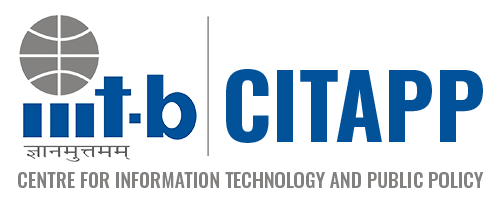Date: 11/01/2023, 4:00 PM – 5:30 PM (IST)
View the webinar recording here
Fairwork India Report 2022: Looking ahead to 2023
_______________________________________________________________________________________________________________________________
Schedule:
4:00 PM to 4:02 PM
Opening remarks: Srinath Srinivasa, Professor and Dean (R&D), International Institute of Information Technology Bangalore
4:02 PM to 4:05 PM
Introduction of the panelists by the moderator, Preeti Mudliar, Assistant Professor, Centre for Information Technology and Public Policy, International Institute of Information Technology Bangalore.
4:05 PM to 4:15 PM
Presentation of the highlights of the Fairwork India 2022 report by the Fairwork India team
4:15 PM to 5:00 PM
Comments on the Fairwork India 2022 report, and future directions for 2023, by the panelists (10-12 minutes each)
- Uma Rani Amara
- Karishma Mehrotra
- Sangam Tripathy
- Tejasi Panjiar
5:00 PM to 5:28 PM
Audience interaction with the panelists and the Fairwork India team
5:28 PM to 5:30 PM
Closing remarks: Balaji Parthasarathy, Principal Investigator Fairwork India, Professor, Centre for Information Technology and Public Policy, International Institute of Information Technology Bangalore
_______________________________________________________________________________________________________________________________
PANELIST BIOS:
Uma Rani Amara is Senior Economist at the Research Department of the International Labour Office. She has conducted research on informal economy, minimum wages, poverty and inequality issues, with a focus on gender. Since 2016 she has been working on digital transformations in the world of work, wherein she tries to explore how labour and social institutions could be strengthened to address economic and social inequality. In 2021, she coordinated the ILO’s flagship report on “World Employment and Social Outlook 2021: The role of digital labour platforms in transforming the world of work”.
Karishma Mehrotra is the South Asia correspondent for the Washington Post. She has focused on platform work in smaller Indian towns as a Fulbright fellow and has reported on various aspects of platform work, including Urban Company protests. She has written or worked for Radiolab, The Wall Street Journal, CNN, The Indian Express, Scroll.in, and Bloomberg Businessweek. She has worked across countries and has held a range of beats, usually focused on forward-looking issues such as technology, urbanization, and climate. Her work is at http://karishmamehrotra.com.
Sangam Tripathy has been a trade union activist for 40 years. He recently retired as Assistant Regional Secretary, International Transport Workers Federation (ITF), Asia-Pacific region, based at its Delhi Office. Since 2017, his work has focused on active mentoring, organizing, mobilising and networking of grass root level app-based drivers and riders unions, associations, and self-help groups. After three years of on ground work, the Indian Federation of App-based Transport Workers (IFAT) was established in December 2019. Since then, IFAT has been instrumental in raising the profile of app-based drivers and riders’ issues, influencing policy changes and advocating legislative interventions and reforms to promote and ensure decent work standards for these workers. IFAT currently represents over 35,000 app-based drivers and riders in 10 cities.
Tejasi Panjiar is Associate Policy Counsel at the Internet Freedom Foundation (IFF). She did her post-graduation in Public Policy at O. P. Jindal Global University. She pursued her undergraduate degree in Political Science (Hons.) from Kamala Nehru College, University of Delhi. Her work at IFF covers issues of privacy and data protection, platform governance, cyber security, and telecom policy. Tejasi also has a special interest in labour practices in the platform economy, the impact of digital revolution on platform work, and the emerging challenges.

